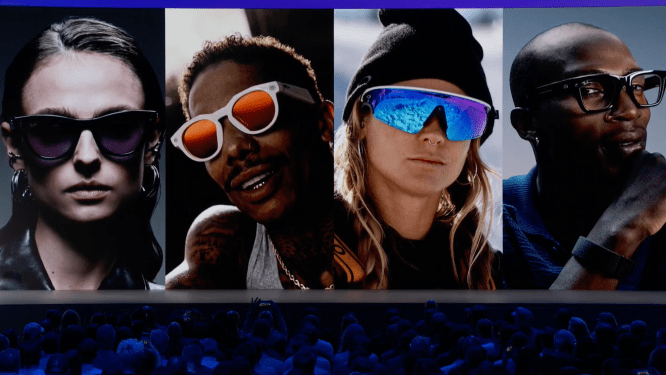If you can’t resist the urge to check your phone over and over, even when you’re with friends, Meta believes it has a solution. The company suggests you should check your glasses instead. At the Meta Connect 2025 keynote, CEO Mark Zuckerberg stated that the promise of glasses is to preserve the sense of presence we have with other people. He expressed that this sense has been lost a little with phones and that there is an opportunity to get it back with glasses.
In reality, Meta wants its own hardware to compete with Apple and Google, reducing its reliance on their app stores. However, this is the angle Meta is using to market its most sophisticated smart glasses yet, the Meta Ray-Ban Display. The company hopes this product could one day eclipse the market share of smartphones.
Meta’s Reality Labs division has burned cash at an alarming rate, which has concerned investors for years. The recent event finally offered a glimpse of what the division’s seventy billion dollars in losses since 2020 have been funding.
Meta has had its share of flops, like the entire promise of its social metaverse. But with the Meta Ray-Ban Display, the company has created a remarkable piece of technology unlike any other consumer-facing product currently on the market. While we have yet to test it ourselves to confirm how groundbreaking it is, the product looks promising.
Like Meta’s existing smart glasses, which have sold millions of pairs, the new model includes cameras, speakers, microphones, and an on-board AI assistant. The display is offset to avoid obstructing the wearer’s sightline and can show Meta apps like Instagram, WhatsApp, and Facebook, as well as directions and live translations.
What most sets the Meta Ray-Ban Display apart is the Meta Neural Band, a wristband that uses surface electromyography to pick up on signals sent between the brain and the hand when performing a gesture. Meta’s keynote did not get into the specifics of how Zuckerberg was writing texts, but according to Reality Labs’ research on this technology, users can write messages by holding their fingers together as if gripping a pen and writing out the text in the air.
While some live AI demos at the keynote failed, with Zuckerberg blaming the Wi-Fi, the wristband was demonstrated in action. Zuckerberg quickly wrote out text messages and sent them using his Ray-Bans. He claimed to be able to write about thirty words a minute and stated that users can get pretty fast. This is impressive considering research estimates that people text at about thirty-six words per minute on a touchscreen smartphone. Reality Labs’ research participants averaged closer to twenty-one words per minute.
Unlike past Meta Ray-Bans, this new technology allows people to use the glasses without speaking aloud, which is not always natural in public. While Apple Watch users can also send texts without voice, the process is often tedious and slow, making it a last resort. Other gesture controls on the wristband seem similar to technology found in Nintendo Joy-Cons and Apple Watches. But if the voiceless texting interface is as good as it seems, the wristband will likely be capable of more complex gestures than consumers are used to.
Meta has invested heavily in research on this technology since 2021, even showing a prototype of a heftier product called Orion. Like Apple and Google, Meta is preparing for a future where smart glasses could potentially eclipse the smartphone.
However, as with any massive hardware investment, there is no way to know if this will feel more natural in day-to-day life than pulling a phone from a pocket to tap out messages. This might be Meta’s biggest bet, perhaps even bigger than its metaverse. It is striking that Zuckerberg is unveiling this technology not just as an innovation, but as something he portrays as more prosocial than the smartphone. It is a way to capitalize on our growing unease with increasing screen time, even though his company makes the apps that demand our attention.
Zuckerberg said the technology needs to get out of the way. Whether the smartphone becomes an obsolete relic like a Nokia with a T9 keyboard depends on the truth behind Zuckerberg’s narrative that these glasses will help us feel more present. Meta and its competitors are betting big on a cultural shift from smartphones to smart glasses, and the Ray-Ban Display will give consumers their first taste of this possible future.

